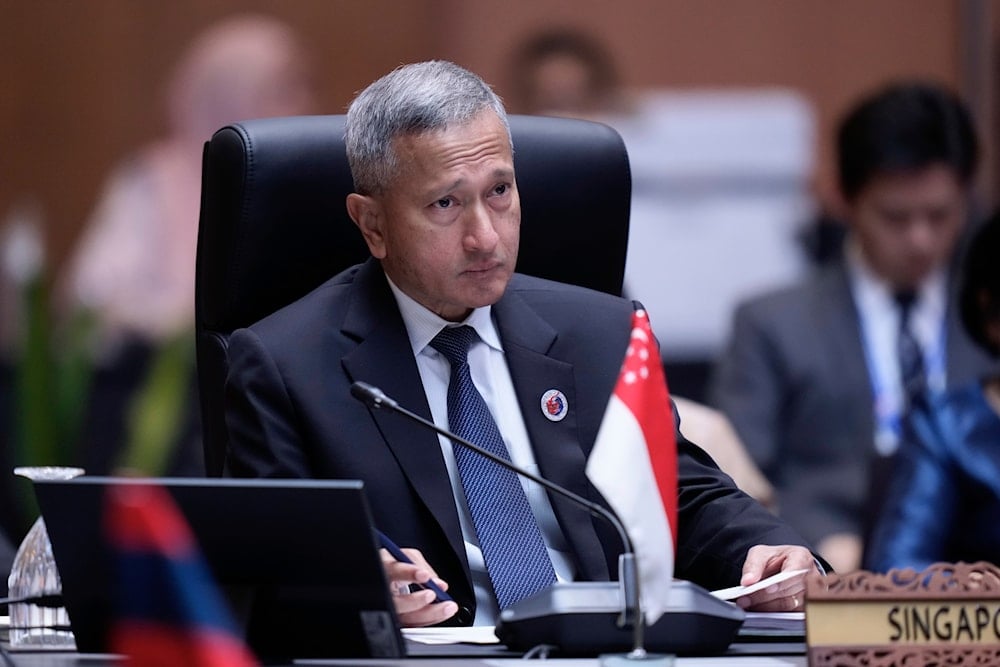Singapore to sanction Israeli settlers, backs Palestine statehood
Singapore plans to impose sanctions on leaders of Israeli settler groups and signals conditional support for a Palestinian state amid rising global recognition.
-

Singapore's Foreign Minister Vivian Balakrishnan attends a plenary session of the Association of Southeast Asian Nations (ASEAN) Foreign Ministers' meeting at the Convention Centre in Kuala Lumpur, Malaysia, Wednesday, July 9, 2025 (AP)
Singapore announced its intention to impose targeted sanctions on leaders of Israeli settler groups and expressed a conditional willingness to recognize a Palestinian state on Monday.
While Western and other nations increasingly take a hard line against settler groups and some Israeli officials whom they accuse of fomenting violence, global recognition is simultaneously growing for the Palestinians' aspiration for an independent homeland.
Singapore's Foreign Minister Vivian Balakrishnan used his speech in parliament to chide the Israeli politicians who have spoken about "annexing" parts of the West Bank or Gaza.
He cited the so-called E1 settlement project for fragmenting the West Bank and undermining a "two-state solution", stating, "We call on the Israeli government to cease settlement construction and expansion," adding that Singapore opposes "ongoing attempts to create new facts on the ground which undermine the prospects for a two-state solution."
Foreign Minister Balakrishnan added that details of the sanctions will be released at a later date.
Recognition marred with complicity
Balakrishnan stated that Singapore's recognition of a Palestinian state is a matter of when, not if, and that Singapore is awaiting an "appropriate constellation" of factors, including the need for an effective Palestinian government that accepts "Israel's" "right to exist" and categorically renounces terrorism.
"Ultimately, to resolve this long-standing conflict in a comprehensive, just and durable manner, there needs to be a negotiated settlement which results in two states, one Israeli (and) one Palestinian, with their peoples living alongside each other in peace, security and dignity," the foreign minister noted.
Despite the close diplomatic and military ties that have existed between Singapore and "Israel" since the former gained independence in 1965, the city-state voted in favour of numerous UN resolutions in 2024 expressing support for the recognition of a Palestinian state.
In a coordinated international effort to revive momentum for a "two-state solution", Australia, Canada, and the United Kingdom each formally announced their recognition of the State of Palestine on September 21.
A high-level United Nations General Assembly summit is set to take place on September 23, where France, joining the UK, Australia, Canada, and Portugal, will recognize a Palestinian state, based on the 1967 borders.

 3 Min Read
3 Min Read










